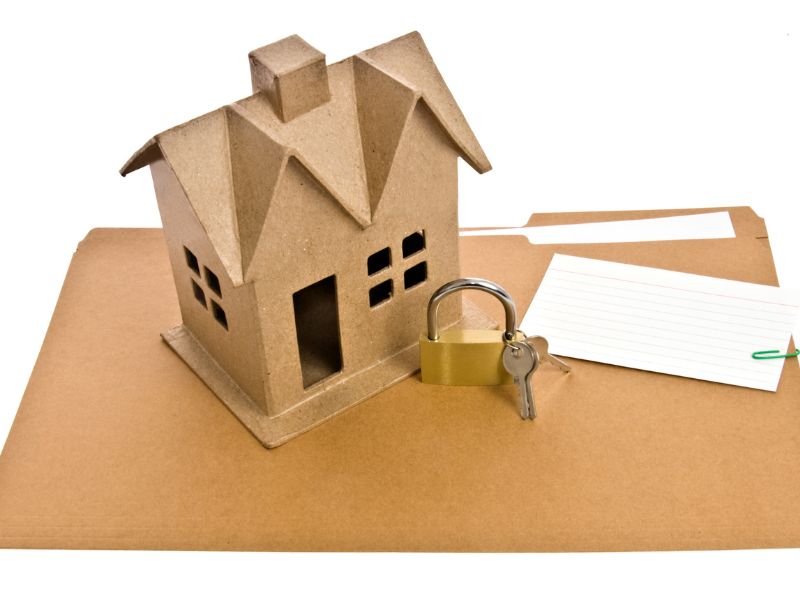Mortgage Rate Locks: When and How to Secure the Best Rate
 Rate locks play a crucial role in the mortgage application process, helping borrowers secure a favorable interest rate for their home loan. Here’s an explanation of the importance of rate locks and when and how to secure the best rate:
Rate locks play a crucial role in the mortgage application process, helping borrowers secure a favorable interest rate for their home loan. Here’s an explanation of the importance of rate locks and when and how to secure the best rate:
Interest Rate Protection: Mortgage rates are subject to market fluctuations and can change daily or even multiple times a day. Rate locks protect borrowers from potential rate increases during the loan processing period.
Budgeting and Planning: Knowing the exact interest rate allows borrowers to budget more effectively and plan their finances with certainty. It prevents unexpected increases in monthly payments, helping borrowers manage their expenses.
Peace of Mind: Homebuyers can experience peace of mind when they know their interest rate is secured. This allows them to focus on other aspects of the home-buying process without worrying about market volatility affecting their mortgage terms.
Financial Stability: Rate locks provide financial stability, especially for those on a tight budget. Unpredictable rate changes can significantly impact the affordability of a mortgage, and a rate lock mitigates this risk.
When to Secure a Rate Lock:
Timing Matters: Rate locks are typically available for a specific period, such as 30, 45, or 60 days. It’s crucial to lock in a rate at the right time, considering the expected duration of the loan approval process.
Market Conditions: Monitor market conditions to identify favorable times for rate locks. If interest rates are low or expected to rise, it might be advantageous to secure a rate lock sooner rather than later.
Loan Approval Status: It’s generally recommended to wait until your mortgage application is complete and the loan is in the underwriting process before locking the rate. This ensures that the lock period aligns with the expected timeline for loan approval.
How to Secure the Best Rate Lock:
Shop Around: Obtain quotes from multiple lenders to compare interest rates and terms. This provides a basis for negotiating and helps you identify the best possible rate.
Understand Lock Terms:
Be aware of the lock period and any associated fees or conditions. Longer lock periods may come with higher fees, so it’s essential to strike a balance that suits your needs.
Consider Float-Down Options: Some lenders offer float-down options, allowing borrowers to secure a lower rate if market conditions improve before closing. Understand the terms and conditions of this option.
Consult with a Mortgage Professional: Work closely with your mortgage broker or loan officer. They can provide guidance on the optimal time to lock in your rate based on market trends and your specific financial situation.
In the end, rate locks provide stability and predictability in a volatile market, enabling homebuyers to secure favorable mortgage terms. Timing, market awareness, and careful consideration of lock terms are essential to ensure you get the best rate for your mortgage.

 Understanding the dynamics of mortgage rates is crucial in assessing the affordability of a home. These rates aren’t isolated figures; they pivot on a variety of economic and market stimuli, and they can exhibit volatility from one week to another. Let’s delve into the current scenario of mortgage rates and what it signifies for potential and existing homeowners:
Understanding the dynamics of mortgage rates is crucial in assessing the affordability of a home. These rates aren’t isolated figures; they pivot on a variety of economic and market stimuli, and they can exhibit volatility from one week to another. Let’s delve into the current scenario of mortgage rates and what it signifies for potential and existing homeowners: When it comes to securing a mortgage, borrowers are often confronted with various terms and figures that may seem confusing at first glance. Two key components that play a significant role in determining the cost of a mortgage are the interest rate and the APR (Annual Percentage Rate). Though they are related, it is crucial to understand the difference between them to make informed decisions while comparing different loan offers. This article aims to shed light on the dissimilarities between the mortgage interest rate and the APR, helping borrowers navigate the mortgage landscape more confidently.
When it comes to securing a mortgage, borrowers are often confronted with various terms and figures that may seem confusing at first glance. Two key components that play a significant role in determining the cost of a mortgage are the interest rate and the APR (Annual Percentage Rate). Though they are related, it is crucial to understand the difference between them to make informed decisions while comparing different loan offers. This article aims to shed light on the dissimilarities between the mortgage interest rate and the APR, helping borrowers navigate the mortgage landscape more confidently.